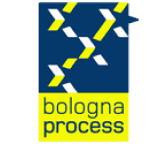History of Bologna process
The Initiative to create the European University Community and the European Higher Education Area has been proposed by the University of Bologna, the oldest university in Italy. In 1986, in preparation for its 900th anniversary, the University made to all European universities a proposal to adopt the Magna Charta Universitarum, the Great Charter of Universities. In 1988, a document proclaiming universal and eternal values of university education was signed by the rectors of 80 universities.
Gradually, the process of European integration of higher education has evolved from the university to the level of Government. In 1998, a meeting of the ministers of education of four countries (France, Great Britain, Germany, Italy) was held in Paris within the walls of the famous Sorbonne University, during the celebration of its anniversary. It was the first time when the strategic goal of creating the European Higher Education Area was substantiated by the Sorbonne Declaration “On the Harmonization of the Architecture of the European Higher Education System” accelerating further developments.
In 1999, the First conference of 30 European ministers of education was held in Bologna. The adopted Declaration “The European Higher Education Area” defined the main aims leading to the achievements of comparability and harmonization of national educational systems of higher education in European countries. This document gave a start to the Bologna process. The further meetings of European ministers of education participating in the Bologna process became regular with an interval of two years.
Prague was a venue for the ministers of education in 2001, Berlin was the next in 2003. The fourth meeting took place in Bergen, Norway in 2005. While the meeting the five countries of the former Soviet Union, including Ukraine declared to join to Bologna process. The fifth meeting was held in London (2007), the sixth - in Leuven/ Louvain-la-Neva (2009), the seventh - in Budapest (2010), the eighth - in Bucharest (2012), the ninth - in Yerevan (2015).
Kazakhstan became a full member of the European Higher Education Area (EHEA) in 2010. Kazakhstan is the first Central Asian State recognized as a full member of the EHEA. The entry of Kazakhstan was noted by ministers of the EHEA in the Budapest-Vienna Declaration.
Currently, the Bologna process includes 48 countries. The Ministerial Conference (the Conference) is the supreme decision-making body on all matters of the structure and development of the Bologna process. The States Party Ministers of education of the Bologna process meet every 2-3 years. The last Ministerial Conference was held on May 24-25, 2018 in Paris (France). During the Conference was adopted the Paris communique.
The EHEA report is prepared before every Conference to identify the conditions and levels of implementation of the Bologna reforms to the participating education policies States. The collection and processing of information are carried out by a team of experts from the Eurostat (the European statistical agency).
The States Party undertakes to fulfill the mandatory, recommendatory and optional parameters of the Bologna process, both at the national and at the institutional level.
Bologna process parameters:
Mandatory
- Three-level higher education system
- ECTS Academic Credits
- Academic mobility of students, faculty and staff
- European Diploma Supplement
- Higher Education Quality Assurance
- European research area formation
Recommended
• European assessment
• Active student engagement
• Social support for low-income students
• Lifelong education
Optional
• Harmonization of educational content in areas of training
• Nonlinear trajectories of student learning, elective courses
• Modular system
• Distance learning, e-courses
• Academic ratings of students and teachers.



